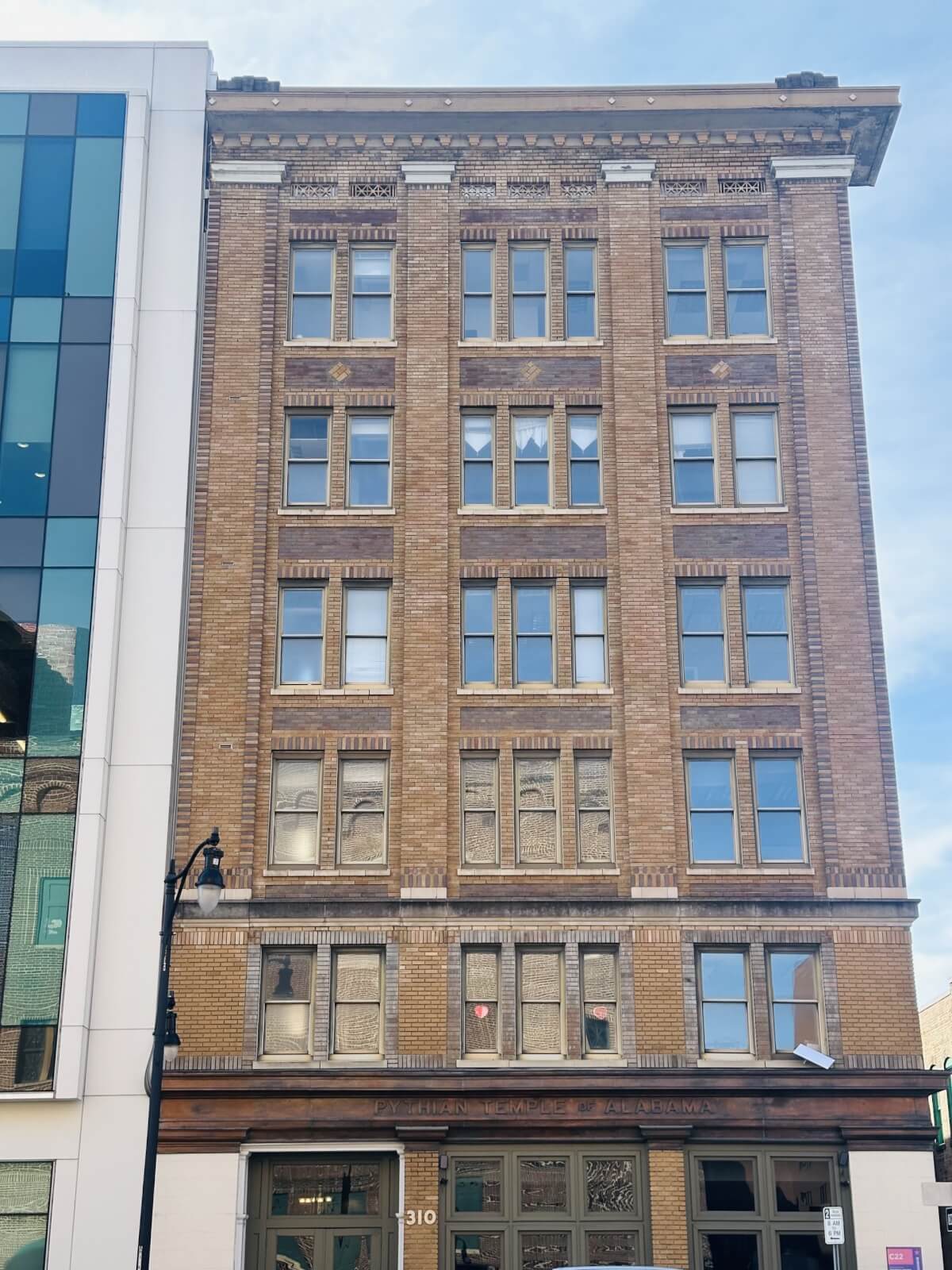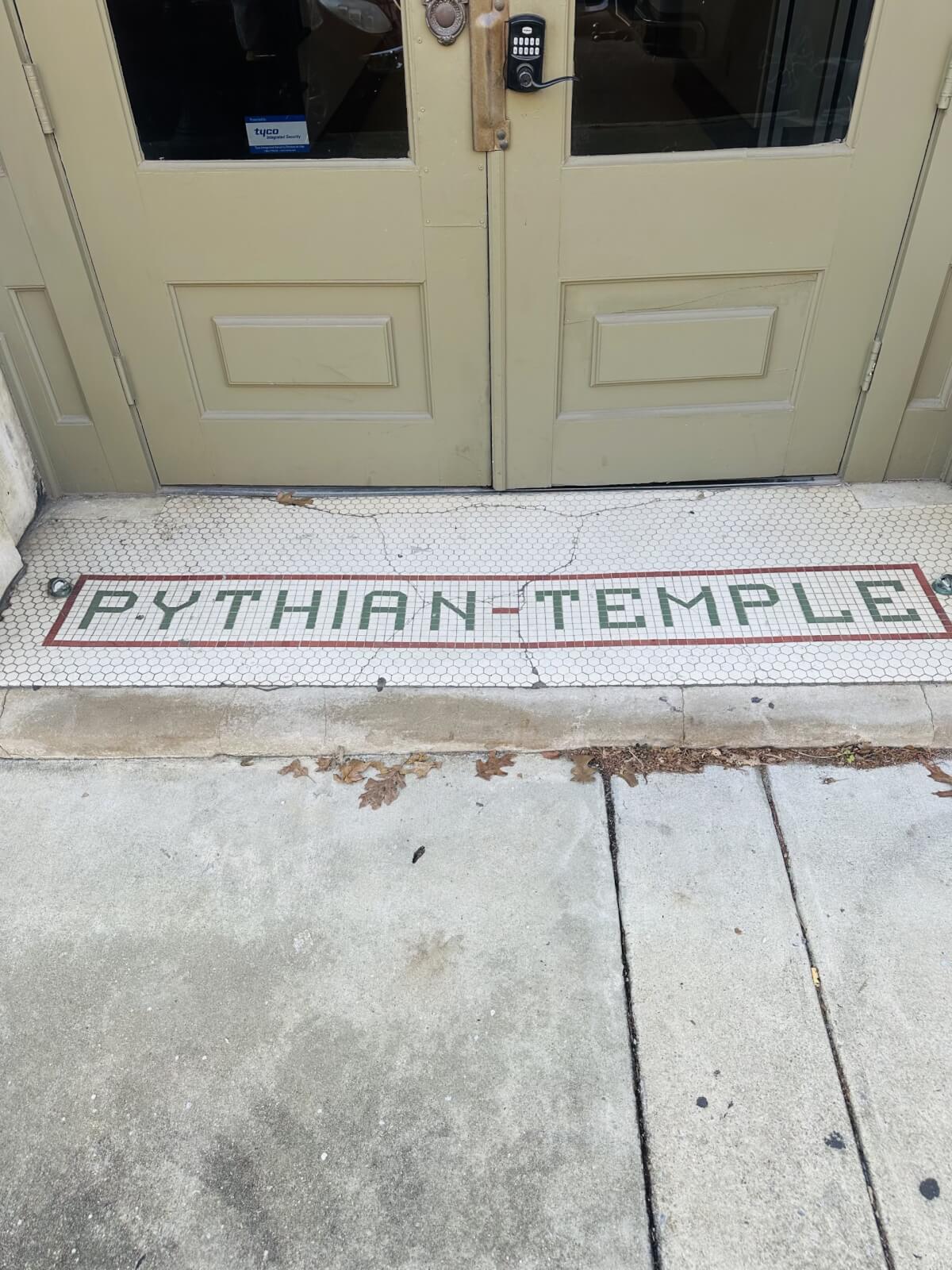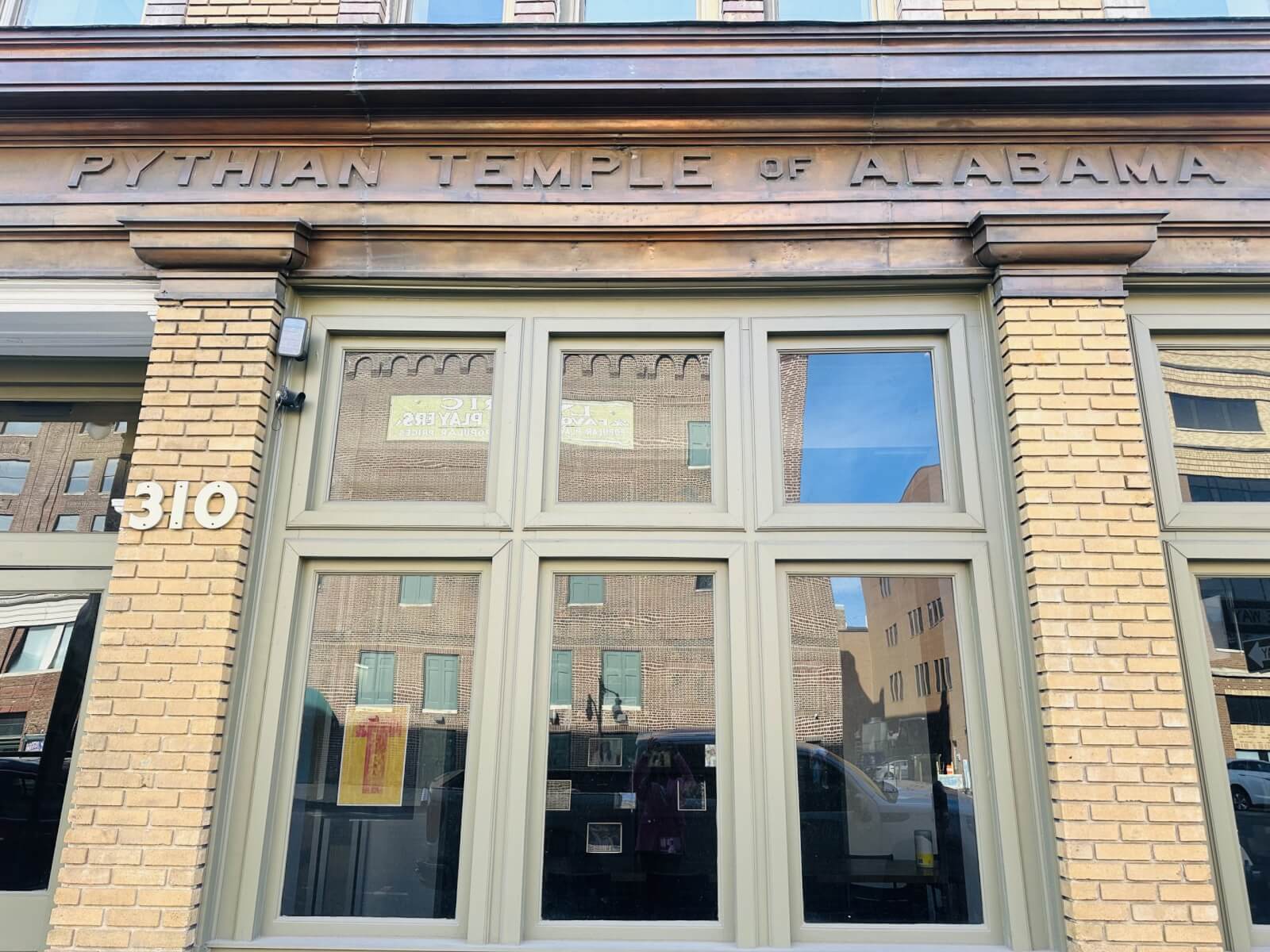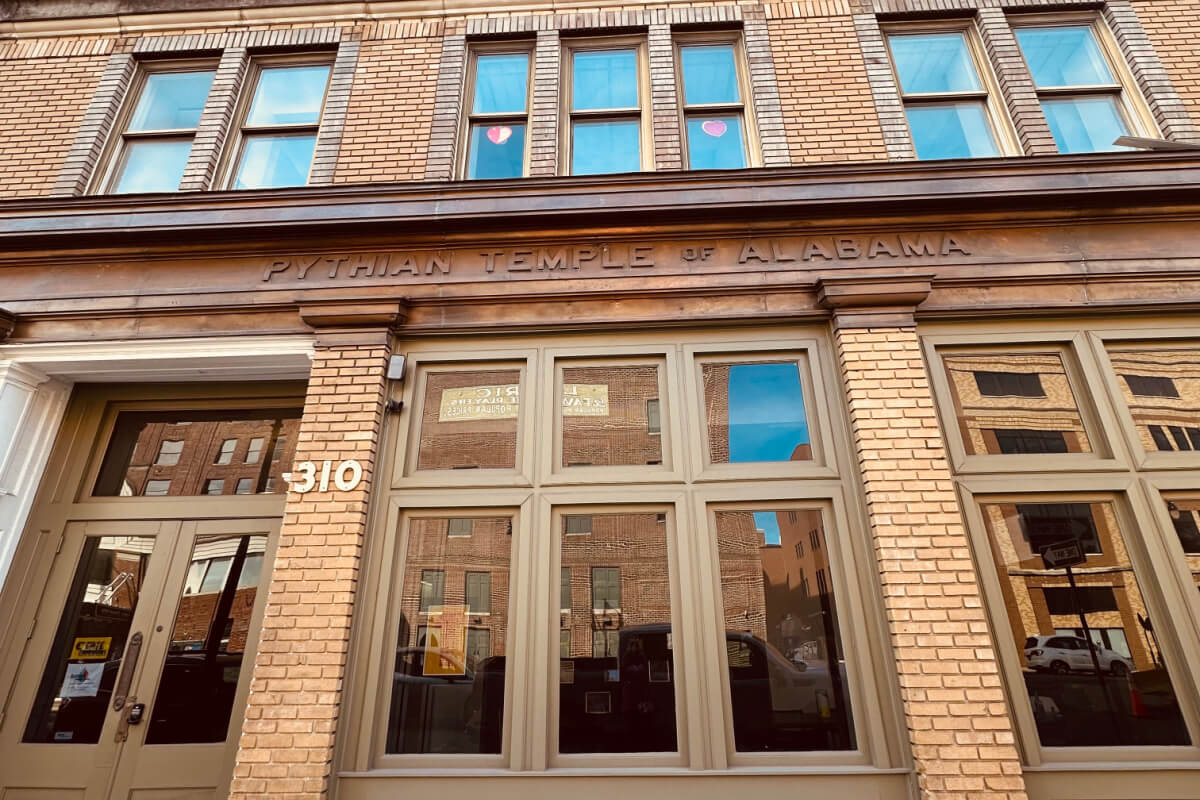On the edge of Birmingham’s Civil Rights District and across from the city’s theater district stands a building more than 100 years old that has a story fit for the stage. The Pythian Temple of Alabama, located at 310 18th Street North, has lived many lives. And through them all, it remains a symbol of progress and hope. Let’s take a closer look at this landmark’s fascinating history!

The History of the Pythian Temple of Alabama
The six-story brick building was constructed in 1913 for the Alabama Penny Savings Bank, which was relocating from its original location. The Alabama Penny Savings Bank, founded in 1890 as the Alabama Penny Savings & Loan Company, was the first African American-owned-and-operated financial institution in Alabama and one of the first three in the United States. Eventually, it would become the second-largest Black-owned bank in the country.
The Penny Savings Bank was founded by Reverend William Reuben Pettiford, pastor of the First Colored Baptist Church of Birmingham, now known as the Sixteenth Street Baptist Church. Rev. Pettiford used the bank to finance the construction of homes, churches, and businesses for thousands of Black Birmingham residents who couldn’t get loans at other banks.
After the bank’s initial location was destroyed in a fire in 1905, Alabama Penny and Savings relocated and constructed its own building in Birmingham’s Black Business District in 1913. Designed by renowned African-American architect Wallace A. Rayfield, the Penny Savings Bank building became a vibrant symbol of Black enterprise and pride.

In her book A Sense of Place: Birmingham’s Black Middle-Class Community, 1890-1930, Lynne B. Feldman explains that buildings like the Alabama Penny Savings Bank were both pivotal and practical.
“These structures were multifunctional,” she writes. “Not only did they provide blacks with symbols of their achievements and abilities, but the structures also became offices to numerous businesses and provided meeting space.”
When the Alabama Penny Savings Bank folded in 1915, the building was purchased by the Alabama Knights of Pythias fraternal organization and renamed the Pythian Temple. Through the years, the building has served many purposes. The Interdenominational Ministerial Alliance, a coalition of Black churches that joined forces to challenge Jim Crow laws, once housed its headquarters at the Pythian Temple building.
In the mid-1900s, iconic entrepreneur A.G. Gaston bought the building and used it for offices for several subsidiaries of the Booker T. Washington Insurance Company. Gaston also had a personal office in the building.
In 1980, the Pythian Temple of Alabama was added to the National Register of Historic Places.
The Lasting Legacy of the Pythian Temple of Alabama
In recent years, the Pythian Temple building has housed several different businesses and organizations, including an eyeglass shop, a law office, the headquarters for Birmingham’s Sidewalk Film Festival, and the meeting space for a local chapter of the historically Black Greek letter organization Delta Sigma Theta Sorority, Inc.
Today, the Pythian Temple Building is home to Create Birmingham, an agency devoted to investing in economic development in the nonprofit and commercial creative sectors, including performing arts, visual arts and crafts, culture and heritage, media and film, design, and culinary arts. Create Birmingham hosts several programs to help facilitate entry into creative entrepreneurship and remove common barriers to success.

When Imani Richardson applied for her job at Create Birmingham, she didn’t realize the organization’s offices were in the Pythian Temple building. Once she did, she began to do a deep dive into researching the building’s history.
“It feels like very much an honor to work in a space that is so historic to the city,” says Imani, who serves as Grants and Development Specialist for Create Birmingham. “I think it speaks to the legacy that exists in Birmingham.”

Near the corner of 18th Street and 4th Avenue North, the Pythian Temple building is at the threshold of Birmingham’s Civil Rights District and Historic Fourth Avenue District.
“The Pythian Temple is the first building that starts the Fourth Avenue Black Business District,” says Jessica Moody, Interim President and CEO of Create Birmingham. “It’s really inspiring for our organization to exist in this building, especially with the work we do to continue supporting Black entrepreneurs and people of color in this city.”
As an Amazon Associate, we earn from qualifying purchases.
**********
For the best of the South — straight to your inbox! — subscribe to our newsletter HERE!



















